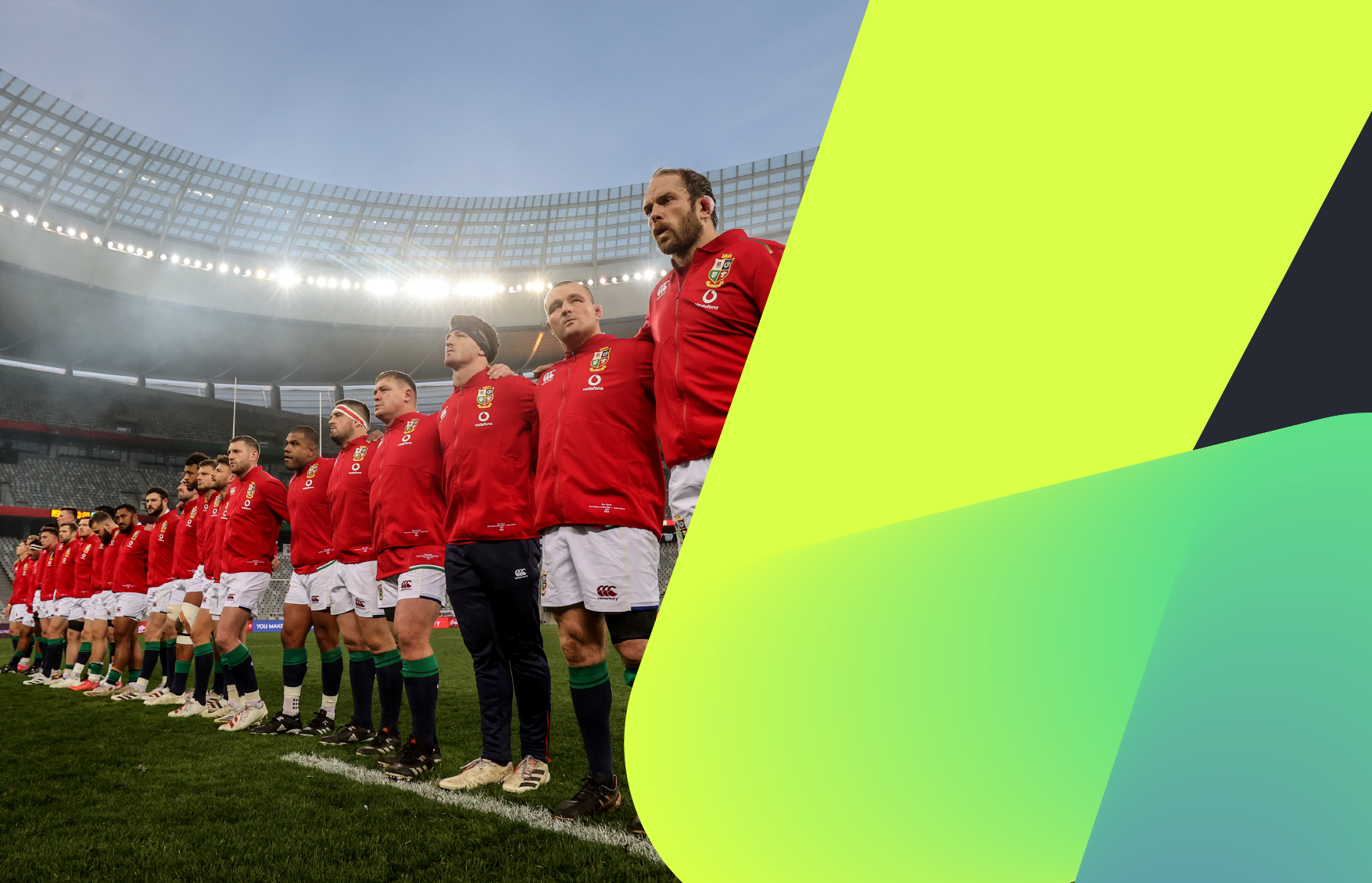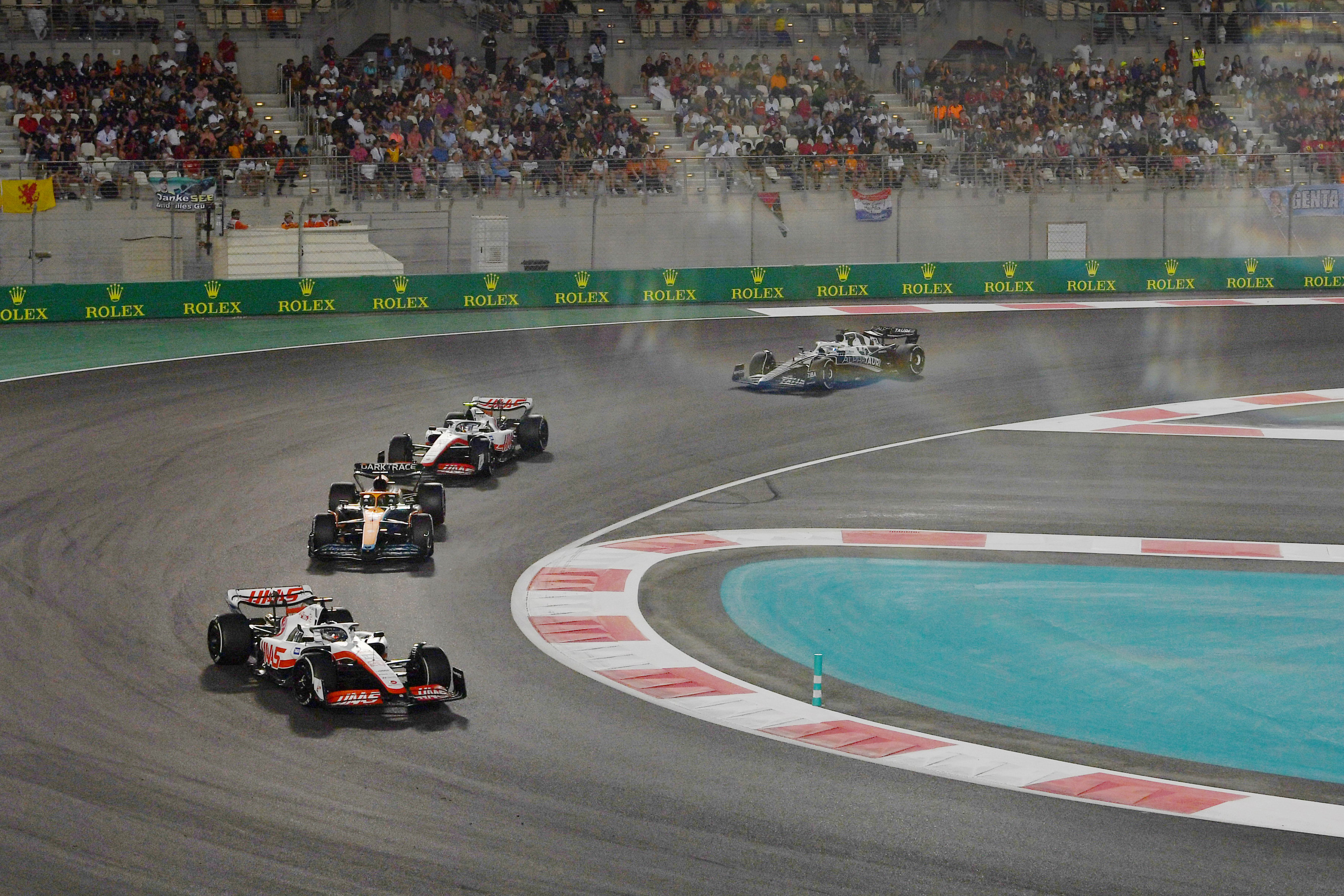2024 Alaska Baseball Adventure
Discover Alaska's stunning beauty, unique Midnight Sun baseball, explore Denali's towering peak, and cap it off with an Anchorage glacier tour on this unforgettable trip!
CLICK HERE to view our 2024 Alaska Baseball Tour >>


The All-Star Game
February 14- 17 , 2025
Chase Center, San Francisco, CA
The 74th edition of the NBA All-Star Game will be hosted by the Golden State Warriors at Chase Center. Enjoy a weekend full of hoops...Skills Competition, 3-Point Contest, Slam Dunk Contest and the All Star Game! A fully-refundable deposit will secure your reservation and guarantee you are contacted with the option to book before the trip is available to the general public.
CLICK HERE to view more >>

Pro Football Hall of Fame Enshrinement
If you are a fan of American football, then visiting the Pro Football Hall of Fame to witness the induction is an opportunity not to be missed. These exceptional individuals have made significant contributions to the sport, and their induction into the Hall of Fame is a testament to their skill and dedication.
CLICK HERE for more!

The Ryder Cup
September 24 - 29 , 2025
Bethpage Black, Farmingdale, NY
Get ready for an epic showdown as the Ryder Cup returns with all its golfing glory! This prestigious biennial event pits the best golfers from Europe against those from the United States in a thrilling team competition.
CLICK HERE to view the 2025 Ryder Cup >>

Hockey Regular Season Getaways
NHL Regular Season packages can be reserved for next season. Check 'em out, find your team and reserve your space today before they fill up.
CLICK HERE to Plan Your Getaway >>

Any Game... Any Place... Any Time!
OUR MISSION IS SIMPLE. To make it hassle-free for groups and individuals to attend sporting events of a lifetime. We offer our popular Baseball Road Trips and Tours, Spring Training packages, Hall of Fame Enshrinements, All Major Sporting Events and our Flexible Independent Travel (FIT) Vacations that are customized to meet your schedule and budget.

How NFL Teams Travel for Away Games: Logistics, Costs, and Behind-the-Scenes Insights
NFL teams travel to games using chartered jets. These jets are designed for players, coaches, and staff. Teams usually stay in hotels close to the stadium and airport. After the game, they often depart right away for their next location, prioritizing efficient travel and logistics.
The logistics extend beyond flights. NFL teams require coordinated ground transportation, such as buses to shuttle players to their hotels and stadiums. Scheduling also poses a challenge, as teams strive to arrive at their destination with ample time for rest and preparation.
Costs play a significant role in away game travel. Airlines, hotels, and meals contribute to a substantial budget. Some estimates suggest that travel expenses for a single away game can exceed $1 million, reflecting the variety of needs for players, coaches, and staff.
Behind the scenes, team personnel meticulously plan these trips. They address everything from hotel accommodations to meal options. Next, we will explore the impact of travel on player performance and examine strategies teams use to mitigate fatigue and enhance readiness for game day.
Table of Contents
How Do NFL Teams Plan Their Travel Logistics for Away Games?
NFL teams plan their travel logistics for away games by coordinating various elements such as transportation, timing, accommodations, and player needs to ensure efficiency and comfort. These key points include:
Transportation: Teams typically travel by chartered flights. These allow for exclusive access and comfort, accommodating the number of players, coaches, and staff. According to a study by the Sports Management Research Institute (2019), charter flights reduce travel stress compared to commercial flights.
Timing: Teams schedule their travel to maximize rest and preparation. Most often, teams leave at least a day before the game to adjust to different time zones and avoid fatigue. The National Football League (2021) recommends arriving early for acclimatization.
Accommodations: Hotels are chosen based on proximity to the venue and available amenities. Teams often secure whole floors to ensure privacy and allow for team meetings and meals. A survey by Team Travel Solutions (2020) indicates that 79% of teams prioritize comfort and convenience when selecting hotels.
Player Needs: Each player’s individual needs are considered. For example, dietary preferences and medical needs are communicated with the traveling staff to ensure wellness during the trip. Research by the American Journal of Sports Science (2022) found that tailored nutritional plans enhance player performance during away games.
Communication: Teams maintain constant communication through coaching staff and player representatives. This ensures everyone is informed about schedules, responsibilities, and any changes. The Journal of Sports Administration and Supervision (2020) emphasizes that clear communication can enhance teamwork and morale.
By managing these logistics, NFL teams aim to create a streamlined and effective travel experience that supports their performance during away games.
What Modes of Transportation Do NFL Teams Use for Traveling to Games?
NFL teams use multiple modes of transportation to travel to games. These include chartered flights, buses, and occasionally trains.
- Chartered Flights
- Trains (rarely used)
The use of these transportation modes reflects logistical needs and economic considerations. Each method has its distinct advantages and challenges for team operations.
Chartered Flights : Chartered flights serve as the primary mode of transportation for NFL teams. Teams often reserve entire planes to accommodate players, coaching staff, and support personnel. For example, when traveling for away games, teams frequently rely on companies like Delta or American Airlines, which provide custom services. According to a 2020 report by Sports Business Journal, these flights are designed to provide comfort and flexibility, enabling teams to travel with their equipment and personal items efficiently.
Team Buses : Team buses represent the secondary mode of transportation. After arriving at the airport, teams typically take buses to hotels and the stadium. These buses are equipped with amenities, such as Wi-Fi and morale-boosting features like video screens. This mode of transportation is crucial for team bonding and minimizing travel fatigue. A case in point is the Green Bay Packers, who prioritize bus travel as part of their game-day routine.
Trains (rarely used) : While less common, some teams occasionally use trains for travel, particularly when playing against nearby opponents. For instance, the New York Jets and New York Giants have leveraged rail services for games within the metropolitan area. Using trains can also offer a unique travel experience and reduce travel times in heavily congested areas. However, this option is usually less practical due to scheduling and logistical constraints, making it an infrequent choice for most NFL teams.
Why Do NFL Teams Prefer Charter Flights Over Commercial Flights?
NFL teams prefer charter flights over commercial flights for several key reasons. Charter flights offer greater control over schedules, comfort, and privacy, which are essential for team logistics and performance.
According to the NFL Players Association, travel arrangements significantly impact a team’s readiness and overall performance during games.
There are several reasons why NFL teams favor charter flights:
Schedule Control : Charter flights allow teams to set their departure and arrival times. This flexibility minimizes travel disruptions from commercial flight delays.
Comfort and Space : Charter flights provide spacious seating and amenities tailored to team needs. Players can relax and prepare mentally for the game.
Team Bonding : Charters facilitate team cohesion. Players and coaching staff can travel together without the distractions of other passengers.
Privacy : Chartering a flight ensures that team strategies and discussions remain confidential, reducing the risk of leaks to competitors.
Technical Terms : – Charter Flights : These are flights that a company or organization rents for specific trips instead of using a commercial airline. – Logistics : This refers to the detailed organization and implementation of complex operations involving people, facilities, and transport.
When teams travel by charter, they benefit from dedicated flight crews, predictable travel times, and the ability to fly into smaller airports closer to their destinations. This can significantly reduce travel time, allowing for quicker access to hotel accommodations and practice facilities upon arrival.
Specific conditions that motivate the choice include:
Scheduling Conflicts : NFL teams often have tight schedules, requiring prompt travel without lengthy layovers.
Travel Considerations : After a long game, players must rest quickly. Charter flights facilitate prompt return travel, aiding in recovery.
For example, if a team plays an away game on Sunday, a charter flight allows them to return home immediately after, promoting rest and preparation for the next game week. These advantages create a strategic edge for NFL teams over their competitors who use commercial flights.
How Much Do NFL Teams Spend on Travel for Away Games?
NFL teams spend an estimated $1 million to $2 million on travel for each away game. This range varies based on factors such as distance, mode of transport, and accommodation.
The primary expenses include flights, hotels, meals, and transportation to and from the stadium. Teams typically charter flights, which can cost around $100,000 to $200,000 for a round trip. Hotel room costs can range from $150 to $300 per room, depending on the city and hotel quality. Meal expenses add up as well, often amounting to $20,000 to $50,000 for the entire traveling party, which includes players, coaches, and staff.
For example, a team traveling from Los Angeles to New York might incur higher costs due to the longer flight duration and potentially higher hotel rates in New York City. Conversely, a team traveling to a closer destination, such as San Francisco, may spend substantially less.
Additionally, teams may encounter variations based on scheduling. A team that travels frequently for away games late in the season or during playoffs often faces increased expenses due to travel demands and the necessity for more elaborate accommodations and arrangements. Weather conditions and unforeseen delays can also contribute to additional costs, such as food and lodging for extended stays.
In summary, NFL teams generally allocate between $1 million and $2 million for travel per away game, influenced by distance, city factors, and scheduling challenges. Further exploration could involve examining how these expenses impact a team’s overall budget and strategies to reduce travel costs.
What Are the Major Expenses Involved in Team Travel?
The major expenses involved in team travel include transportation, lodging, meals, equipment, and insurance.
- Transportation
Understanding the details of these expenses can provide insight into the logistics of team travel. Each cost element plays a crucial role in ensuring the smooth operation of travel for athletic teams.
Transportation: Transportation refers to the costs associated with moving the team to their destination. This typically includes airfare or bus rentals for long-distance travel. According to the National Athletic Trainer’s Association, teams may spend thousands of dollars on transportation, especially for flights. For instance, a charter flight for a football team might cost upwards of $50,000. In addition to the direct costs, there may be additional charges for luggage or equipment transport.
Lodging: Lodging includes the expenses related to staying in hotels. Teams often reserve multiple rooms to accommodate players, coaches, and support staff. The average cost per room can range from $100 to $300 per night depending on the location and season. A football team traveling for a game might book dozens of rooms for several nights, leading to significant expenses. Studies show that teams often prefer hotels that provide specific amenities, such as training facilities or team dining options.
Meals: Meals encompass the food costs for team members while on the road. Teams usually provide meals for players and staff to ensure proper nutrition. Estimated meal costs can range from $30 to $100 per person per day, depending on the venue or menu. The overall meal expense can accumulate rapidly, especially during extended trips. A case study of a major league baseball team indicated that meal budgets could reach over $5,000 for a week-long road trip.
Equipment: Equipment expenses involve the costs related to transporting necessary gear, uniforms, and medical supplies. Teams must ensure that all essential items arrive safely at the destination, which may include additional shipping fees. The transportation of equipment can often vary widely based on the type and size of the team. For instance, a rugby team might need to transport larger items like goalposts or training equipment, increasing costs.
Insurance: Insurance costs include policies protecting the team and its members during travel. This can cover injuries, lost equipment, and travel disruptions. Teams may invest in different types of insurance, such as travel insurance or liability coverage. Insurance costs can vary, but teams consider them an essential aspect of budgeting, especially after incidents in previous seasons raised concerns about safety and liability.
Understanding these major expenses gives a clearer picture of what it takes for teams to travel efficiently and effectively. Teams assess these costs carefully to manage their budgets while ensuring players and staff have what they need during their travels.
What Preparation Steps Are Taken by NFL Teams Before Traveling for Games?
NFL teams take several preparation steps before traveling for away games to ensure players are ready and that logistics are well organized.
The main preparation steps include: 1. Travel Itinerary Planning 2. Player Health Management 3. Equipment Preparation 4. Communication with Destination Venue 5. Team Security Measures 6. Game Strategy Review
These steps highlight the multifaceted nature of preparation, with perspectives varying on the emphasis placed on each aspect. While some may prioritize player health, others might focus on logistics or game strategy.
Travel Itinerary Planning : Travel itinerary planning involves organizing flight schedules, ground transportation, and accommodation details. Each NFL team typically coordinates with airline or travel partners to secure charter flights, which allow teams to travel together conveniently. The planning phase ensures that players and staff have sufficient time to rest and acclimatize before the game. A well-planned itinerary reduces stress and fatigue, potentially enhancing overall team performance.
Player Health Management : Player health management focuses on physical conditioning and injury prevention strategies. Teams often send their medical staff ahead to set up recovery and treatment facilities. Player fitness levels are monitored to determine travel readiness, especially for injured players. For example, teams may decide to rest certain athletes to ensure they are at their best during games. The importance of this step is underscored by studies showing a correlation between team readiness and player health, exemplified by the successful recovery programs implemented by teams like the New England Patriots.
Equipment Preparation : Equipment preparation ensures that all necessary gear is transported and available for the game. This includes uniforms, helmets, pads, and practice equipment. The equipment managers work closely to pack and verify that everything is accounted for. This step is critical; if gear is missing, it can adversely affect players’ performance. An incident involving the Chicago Bears in 2018, where uniforms were delayed, illustrates the risk associated with improper equipment planning.
Communication with Destination Venue : Communication with the destination venue involves liaising with the home team’s staff to coordinate logistics such as practice times, locker room access, and emergency protocols. This ensures smooth operations and a supportive environment after the team arrives. Efficient communication can prevent misunderstandings and allow for effective use of the facilities.
Team Security Measures : Team security measures are crucial for player safety and well-being. Teams often hire security personnel to accompany them during travel. They assess hotel security and travel routes to mitigate risks. In light of incidents involving fan encounters or threats, maintaining security protocol becomes increasingly vital for teams, ensuring players can focus on performance without distractions.
Game Strategy Review : Game strategy review entails discussions led by coaching staff about tactics and game plans for the upcoming match. This is typically conducted in meetings before and during travel to allow players to mentally prepare. The strategy may be adjusted based on the opponents’ strengths. A comprehensive analysis helps teams increase their chances of winning, reflecting the importance of preparation beyond physical readiness.
These preparation steps illustrate the complexity behind NFL team travel and emphasize how thorough planning can contribute to success on game day.
How Do Staff Members Contribute to Travel Preparations?
Staff members contribute to travel preparations by managing logistics, coordinating schedules, ensuring compliance with regulations, and supporting travelers’ needs. Each role is essential for a smooth travel experience.
Managing logistics: Staff members handle transportation arrangements, including booking flights and securing ground transportation. They work to optimize travel routes and schedules, aiming for efficiency while considering the team’s needs. According to a 2022 study by Travel Management Quarterly, effective logistics planning can save organizations up to 20% in travel costs.
Coordinating schedules: Staff members develop a detailed itinerary that includes meeting times, travel durations, and accommodation details. They ensure that all team members are informed and that schedules accommodate necessary activities. A well-organized itinerary minimizes travel disruptions and enhances team performance.
Ensuring compliance: Staff members are responsible for ensuring that travel plans comply with relevant regulations and policies. This includes checking passport validity, arranging necessary visas, and understanding health and safety mandates specific to travel destinations. For instance, guidelines from the International Travel Association (2021) emphasize that proper compliance can prevent legal issues and delays.
Supporting travelers’ needs: Staff members assist travelers with personal requests such as dietary restrictions and accommodation preferences. They also provide resources for emergencies, such as contact numbers for local services. This support helps alleviate travel-related stress, allowing team members to focus on their performance.
These contributions collectively enhance the overall travel experience, ensuring that staff and team members can concentrate on their objectives without unnecessary obstacles.
What Challenges Do NFL Teams Encounter While Traveling?
NFL teams encounter several challenges while traveling for away games. These challenges include logistical issues, health and safety concerns, time zone adjustments, team cohesion, and game preparation.
- Logistical issues
- Health and safety concerns
- Time zone adjustments
- Team cohesion
- Game preparation
These challenges can significantly impact a team’s performance and overall experience during away games.
Logistical issues arise from the complexities of arranging travel for a large group. Each NFL team typically consists of around 53 players, coaches, and staff, requiring careful coordination of flights, accommodations, and transportation. Mismanagement could lead to delays, which might affect team routines and preparations. According to a study published by Forbes in 2022, effective logistical planning can improve a team’s performance by as much as 15%.
Health and safety concerns play a crucial role during travel. NFL teams need to ensure adequate nutrition, hydration, and recovery strategies for players while on the road. In recent years, issues related to COVID-19 have necessitated additional precautions, such as maintaining social distancing and ensuring proper sanitization. The NFL’s health protocols have evolved, but they consistently emphasize player well-being during travel. Research by the NFL’s Chief Medical Officer in 2021 indicated that teams focused on health and safety saw reduced injury rates.
Time zone adjustments can disrupt players’ circadian rhythms. Traveling across multiple time zones can result in fatigue and decreased alertness during games. A 2018 study published in the Journal of Sports Sciences found that NFL teams traveling east often have lower performance levels than their opponents due to this fatigue. Players may need to acclimatize to the new time zone prior to the game, which could affect their training schedules.
Team cohesion is vital during challenging travel scenarios. Extended periods away from home can foster camaraderie, but they can also lead to stress and isolation. Maintaining strong interpersonal relationships among team members is necessary to combat potential negativity. In the 2020 NFL season, the use of team bonding activities during travel was noted as beneficial for morale and overall performance.
Game preparation can be hindered by travel challenges. Teams might have limited practice time upon arrival, depending on travel schedules and local conditions. This could impact their ability to execute game plans effectively. According to a 2019 survey by the NFL Coaches Association, 78% of coaches reported that travel affected their teams’ game preparedness adversely.
In conclusion, the challenges NFL teams encounter while traveling can have significant implications for their performance and cohesion. Addressing these issues is essential for maximizing success during away games.
How Does Weather Impact the Travel Plans of NFL Teams?
Weather impacts the travel plans of NFL teams in several ways. First, it influences scheduling decisions. Extreme weather can lead to changes in game times or locations. Second, it affects team transport. Inclement weather can delay flights or road travel, leading to potential conflicts with game schedules. Third, weather conditions can impact player preparation. Rain, snow, or temperature changes can necessitate adjustments in practice routines prior to games. Finally, it influences game strategies. Teams may alter their play styles based on expected weather conditions. Overall, weather plays a vital role in how NFL teams plan and execute their travel for away games.
How Do NFL Teams Ensure Player Wellbeing During Travel?
NFL teams prioritize player wellbeing during travel by implementing a series of strategies focused on health, nutrition, rest, and mental wellness. These strategies ensure that players remain in peak physical and psychological condition during the demanding travel schedules of the season.
Health monitoring: Teams regularly assess players’ health to prevent injuries and ensure recovery. They utilize athletic trainers and medical staff to evaluate physical conditions before and after travel.
Nutrition management: Proper nutrition is essential for maintaining energy levels. Teams provide tailored meal plans designed by nutritionists. These plans include balanced meals with proteins, carbohydrates, and healthy fats. Research shows that athlete performance improves with optimal nutrition (Scalzo et al., 2021).
Sleep protocols: Teams adopt specific sleep strategies to combat fatigue. For example, they may provide players with guidelines on adjusting sleep schedules in advance, ensuring players get adequate rest during flights and upon arrival. Sleep has a critical role in recovery, with studies indicating that sleep deprivation can impair performance (Walker, 2017).
Hydration strategies: Hydration is crucial for player performance. Teams encourage players to drink water and electrolyte-rich fluids before, during, and after travel. Studies highlight that proper hydration can improve endurance and reduce the risk of cramps and injuries (Maughan & Burke, 2012).
Mental health resources: Teams offer access to mental health professionals, including sports psychologists. These resources help players cope with the psychological stress of travel and competition. A study found that mental health support positively influences athletes’ performance and overall wellbeing (Watson et al., 2019).
By focusing on these comprehensive aspects of wellbeing, NFL teams effectively support their players during travel, ensuring they are prepared for the challenges of away games.
What Health Protocols Are Implemented for Traveling Players?
Health protocols for traveling players are essential for ensuring their safety and well-being during away games. These protocols typically include guidelines for testing, vaccination, hygiene practices, and emergency procedures.
Key health protocols for traveling players include: 1. COVID-19 Testing 2. Vaccination Requirements 3. Hygiene Practices 4. Quarantine Measures 5. Emergency Medical Procedures
These protocols reflect a comprehensive approach to player safety, integrating multiple health strategies to minimize risks.
COVID-19 Testing : COVID-19 testing involves regular screening for players and staff before travel and upon arrival at the destination. Most leagues implement a testing frequency based on local regulations or guidelines set by health authorities. For example, the NBA mandates testing prior to games and allows asymptomatic players to play if they test negative. This step is crucial in controlling outbreaks.
Vaccination Requirements : Vaccination requirements ensure that players are immunized against COVID-19 and other infectious diseases. Some leagues may require full vaccination for participation in certain regions. According to the CDC, vaccination significantly reduces the chances of severe illness and transmission, making it a vital component in health protocols.
Hygiene Practices : Hygiene practices include frequent hand washing, the use of hand sanitizer, and the regular cleaning of shared spaces and equipment. Teams provide sanitation stations throughout facilities. A study by the World Health Organization emphasizes that proper hygiene can reduce the spread of viruses, making these protocols imperative during team travel.
Quarantine Measures : Quarantine measures are applied if a player tests positive or has been exposed to confirmed COVID-19 cases. Protocols often vary but generally include isolating the affected individual and testing others who may have been in contact. The NBA outlined procedures for quarantine in their health and safety protocols to mitigate risks.
Emergency Medical Procedures : Emergency medical procedures refer to the steps a team must follow in case of a medical emergency during travel. This includes knowing the nearest medical facilities, having access to medical staff, and ensuring adequate health insurance coverage. The NFL provides teams with training in emergency response, ensuring that players receive prompt care if needed.
These health protocols are essential for maintaining player health and safety and adapting to the ever-changing landscape of health-related regulations in sports.
How Are Away Game Schedules Coordinated with Team Travel Plans?
Away game schedules coordinate with team travel plans through a systematic approach. First, the league establishes the game schedule, which includes dates and locations for all teams. Next, team management reviews the schedule to determine travel logistics. Teams analyze travel distances, mode of transportation, and hotel accommodations based on the schedule.
Following this, teams collaborate with travel agents or logistics companies. They arrange flights, buses, and hotel bookings that suit the team’s needs. Teams aim to reduce travel time and maximize player rest.
Additionally, teams consider game day timelines. They ensure players arrive with ample time for practice and preparation. This coordination involves communication between coaches, players, and travel coordinators.
Overall, team travel plans align with away game schedules through careful planning and logistical coordination. This process ensures the team can perform effectively despite the challenges of traveling.
What Factors Influence the Timing and Location of NFL Away Games?
The timing and location of NFL away games are influenced by several factors, including scheduling logistics, travel considerations, and competitive balance.
- Scheduling Logistics
- Travel Considerations
- Competitive Balance
- Broadcast and Media Rights
- Fan Engagement and Market Reach
Understanding these factors provides insight into the complex planning required for NFL planning, which takes various perspectives into account.
Scheduling Logistics : Scheduling logistics dictate when and where NFL teams play their away games. The league’s schedule is meticulously crafted to accommodate numerous variables, such as team conflicts, stadium availability, and holiday considerations. The NFL typically releases its schedule in April, ensuring teams have adequate time to prepare.
Travel Considerations : Travel considerations are crucial for away games. Teams must account for distance, time zones, and travel routes. Longer travel distances may require more planning and could impact team performance due to fatigue. According to a study by the Journal of Sports Economics, teams that travel further than 1,500 miles report a notable decrease in performance.
Competitive Balance : Competitive balance is a priority for the NFL. The league aims to create an even playing field by managing how often teams face tough opponents, especially away from home. This ensures that no single team has an unfair advantage or disadvantage based on travel or scheduling.
Broadcast and Media Rights : Broadcast and media rights significantly influence game timing and location. Networks want to maximize viewership, which can lead to adjustments in scheduling. High-profile matchups are often positioned in prime time slots, impacting when and where these games are played on the NFL calendar.
Fan Engagement and Market Reach : Fan engagement and market reach shape the timing and location of NFL away games. Teams aim to enhance their fan base by playing in more markets. This might mean scheduling a game in a location where there is a strong following for a specific team, leading to increased attendance and viewership.
By analyzing the various elements that influence NFL away games, we gain an array of perspectives on how the sport is both a competitive and a commercially-driven entity.
- How do nfl players travel
- How do nba teams travel
- How do most water-soluble hormones travel in the bloodstream
- How do mlb teams travel
- How do major league baseball teams travel

How College Football Teams Travel: Inside Their Logistics and Flight Patterns
Ashley Hopkinson
Updated on: July 6, 2024

In the ever-evolving landscape of college football, the way teams travel has undergone significant transformations over the years.
As the sport’s popularity grew, so did the need for efficient transportation methods to bridge the vast distances between games.
A pivotal moment in this evolution was the advent of air travel for football teams, revolutionizing the way they competed across different regions.
Historical milestones, such as New Mexico’s flight to Occidental in Los Angeles and Kansas’ journey to Penn, marked the dawn of a new era in college football logistics.
These early instances set the stage for teams to traverse long distances in a fraction of the time it would take by traditional means.
As conferences expanded and teams faced greater geographic challenges, the shift towards air travel became not just a convenience but a necessity for maintaining competitive schedules and optimizing player rest and preparation.
Methods of Travel for College Football Teams
When it comes to transportation, college football teams mainly rely on two primary methods: air travel and bus travel.
These modes of transportation play a crucial role in ensuring teams can compete effectively across regions while adhering to tight schedules and logistical constraints.
Let’s delve into the specifics of each travel method to understand how college football teams navigate their journeys.
Air travel has become an essential component of college football team transportation. Teams often utilize charter aircraft to fly to distant away games, allowing them to cover long distances efficiently and reduce travel time.
In the current landscape, teams are using smaller charter aircraft due to capacity restrictions and geographic proximity considerations for Bowl game matchups.
This shift has led to a decrease in college sports air charter travel, impacting the potential matchups and travel frequency of powerhouse teams.
Bus travel serves as another common method for college football teams, especially for shorter distances or regional matchups.
Charter buses offer a cost-effective transportation solution, enabling larger groups to save significantly on travel budgets compared to commercial flights.
These modern charter buses feature comfortable amenities like reclining seats, ample storage space for equipment, electric outlets, WiFi, and clean restrooms, ensuring a safe and comfortable journey for the entire team.
With experienced CDL-licensed drivers and compliance with transportation regulations, charter bus travel provides a secure and stress-free transportation option for college football teams.
Planning and Logistics of Team Travel
In college football, meticulous planning and logistics are key to ensuring seamless team travel experiences.
Factors such as scheduling considerations and accommodation arrangements play crucial roles in the efficiency and success of football team transportation.
Scheduling Considerations
When it comes to traveling for college football games, scheduling is a critical aspect that demands careful attention.
Teams must align their travel plans with game schedules, considering factors like distance, game times, and rest periods.
Coordinating with transportation providers to optimize travel routes and timings is essential to minimize disruptions and ensure players are well-rested and prepared for their matches.
Utilizing charter buses or planes for longer distances is a common practice among college football teams to ensure efficient and comfortable travel.
By partnering with transportation companies experienced in sports travel, teams can access amenities geared towards athlete needs such as extra legroom, WiFi, and onboard catering services. This enhances the overall travel experience for players and staff.
Accommodation Arrangements
Accommodation arrangements for college football teams require thoughtful planning to provide players with comfortable and conducive environments during their travels.
Coaches and team managers must secure suitable lodging options that offer amenities to support players’ physical and mental preparation for games.
Choosing hotels with fitness facilities, nutritious dining options, and strategic locations in proximity to game venues contribute to the overall well-being and performance of the team during away games.
Ensuring Safety and Comfort During Travel
College football teams prioritize both safety and comfort when traveling to games or events.
Here’s how they ensure that the transportation experience meets the highest standards:

Security Measures
Ensuring the safety of student-athletes is a top priority for college football teams. When it comes to air travel, charter flights are meticulously planned and executed to comply with stringent regulations set by the US Department of Transportation (DOT) and Federal Motor Carrier Safety Administration (FMCSA).
These regulations guarantee that all aircraft used for team transportation meet safety standards, and only experienced CDL-licensed professionals operate the flights.
This attention to detail significantly reduces the risk factors associated with air travel, providing peace of mind to both players and staff.
For bus travel, teams opt for modern charter buses equipped with advanced security features. Each bus undergoes thorough safety inspections to ensure compliance with transportation regulations.
The presence of experienced drivers further enhances the safety of the journey. By prioritizing security measures, college football teams create a secure travel environment for their players, coaches, and staff.
Comfort and Facility Requirements
Comfort plays a vital role in maintaining the well-being of student-athletes during travel. Charter buses offer comfortable reclining seats with ample arm and legroom, allowing even the tallest players to relax throughout the journey.
To cater to their needs, buses are equipped with storage compartments for personal and team equipment, ensuring that everything is conveniently stowed away during transit.
In addition to physical comfort, modern charter buses provide amenities that enhance the overall travel experience. Passengers can access electric outlets and WiFi onboard, allowing them to stay connected and entertained during the trip.
Clean restrooms are also standard inclusions, ensuring that players can freshen up as needed during long journeys.
By prioritizing comfort and facility requirements, college football teams create a conducive environment for players to rest and prepare effectively for their upcoming matches.
Impact of Travel on Team Performance
The Impact of Travel on Team Performance can be significant in college football.
Here are some key factors that can affect how teams perform:
Effects of Travel Distance
The Effects of Travel Distance are crucial as they can impact players’ fatigue levels and recovery time. Longer travel distances may lead to increased jet lag, affecting players’ performance on the field.
Teams traveling shorter distances may have a competitive edge by arriving more refreshed and ready to play. Travel logistics for college football teams often involve careful consideration of distance to minimize the impact on players.
By choosing shorter travel distances, teams can help reduce fatigue and jet lag, ultimately enhancing player performance during games.
Time Zone Adjustments
Time Zone Adjustments play a vital role in how college football teams adapt to different game schedules. Traveling across multiple time zones can disrupt players’ circadian rhythms, affecting their sleep patterns and overall readiness for the game.
Teams that effectively manage time zone adjustments through strategic planning and acclimatization techniques can enhance their performance on game day.
By prioritizing adequate rest, hydration, and light exposure, teams can help players adjust to new time zones more effectively.
Implementing gradual schedule changes and optimizing travel itineraries are also key strategies in minimizing the impact of time zone differences on athletes’ performance.
Frequently Asked Questions
How has the evolution of transportation methods impacted college football teams?
Transportation evolution has improved teams’ competitiveness, with air travel covering long distances efficiently and buses commonly used for regional games.
What benefits do charter buses provide for college football team travel?
Charter buses offer cost-effective and comfortable transportation solutions, prioritizing safety, comfort, and compliance with regulations.
How does travel impact college football team performance?
Travel distance, fatigue levels, recovery times, and time zone adjustments impact players’ readiness for games.
How do football teams manage air travel to away games?
For regular-season games, teams like Penn State football charter smaller planes from local airports, ensuring efficient travel for players, coaches, and staff.
Efficient transportation plays a vital role in the competitive landscape of college football. Air and bus travel are the mainstays for teams moving across various distances.
From covering long distances swiftly with air travel to utilizing buses for regional games, the modes of transportation impact not only the teams’ logistics but also their overall performance.
The evolution towards smaller charter aircraft to navigate capacity restrictions has reshaped college sports air charter travel, influencing game schedules and travel frequency.
In terms of ground transportation, charter buses provide a cost-effective and comfortable solution for team travel.
Meticulous planning is essential to ensure seamless transportation, aligning travel with game schedules, optimizing routes, and arranging suitable lodging for the teams.
Safety and comfort are paramount considerations, with stringent security measures in place to uphold regulatory standards.
Modern charter buses come equipped with various comfort features to enhance the travel experience for players and staff.
Leave a Comment Cancel reply
Save my name, email, and website in this browser for the next time I comment.
Most Recent

Inside Look: How Does the NCAA Baseball Tournament Work?

Tom Brady Retirement: Reflecting on an Iconic Career and Unmatched Legacy

Peyton Manning’s Nationality: American Heritage and Cultural Influence

Why Did Cam Newton Retire? Exploring the Reasons Behind His NFL Retirement

Tom Brady Family: Inside His Life With Gisele Bündchen and Their Three Children

What Does FC Mean in Baseball? Understanding Fielder’s Choice Explained

Sport transcends boundaries, uniting individuals and communities through the universal language of competition and camaraderie.
Privacy Policy
© 2024 thebruinsblog.net

Football Match Breaks
Official ticket, travel and hotel packages.

Reserve your seat for 24/25
Book with a deposit from £50pp and pay eight weeks before your fixture.

Head to a circuit of your choice in 2024 & 2025

British & Irish Lions Tour 2025
Head out to australia and watch the tour in person.

England v India Test
Watch all the action from emirates old trafford, ticket | travel | hotel.
Choose your event...


Premier League Tickets 2024/25

Why choose an Official SportsBreaks Experience?
Unmissable sport in dream destinations
Witnessing European football nights under the lights, being circuit-side at a Grand Prix, or cheering a six at the cricket - live sport can’t be beaten. Travelling abroad, absorbing the atmosphere of your favourite sporting event, or watching history unfold – they’re memories to last a lifetime.
A hassle-free booking experience
At SportsBreaks, we’re here to take away the stress of planning and booking your dream break. Alongside your official ticket, we’ll take care of your flights, airport transfers, hotel, and transport to make your break as comfortable and hassle-free as possible.
A human touch and service you can trust
With years of industry experience and expertise, our team are here to help you. As recipients of the Feefo Gold Trusted Service Award 2024, we’re committed to providing exceptional customer support and a service you can trust.

Continue using GBP
Switch to usd.
Connect with us
Customer Services
- Terms and Conditions
- Standard Information Forms
- Website Terms of Use
- Privacy Policy
- Cookie Policy
- Opening Hours: Weekdays 8.30am - 6.00pm Saturday 8.30am - 4.30pm Sunday - Closed
- Call us now:
- 0333 2309115
- [email protected]
- Agent registration:
- Work With Us
Our Experience
The Sportsbreaks.com team have extensive experience in sports travel and are huge sports fans themselves, so you can be confident that your trip is in the best hands. SportsBreaks.com , for fans, by fans!

Your booking is safe with us
We like to take all of the stress out of your trip, that's why we ensure that your trip is protected from any unforeseen events.

© sportsbreaks.com
Your Financial Protection - Some of the flights and flight-inclusive holidays on this website are financially protected by the ATOL scheme. But ATOL protection does not apply to all holiday and travel services listed on this website This website will provide you with information on the protection that applies in the case of each holiday and travel service offered before you make your booking. If you do not receive an ATOL Certificate then the booking will not be ATOL protected. If you do receive an ATOL Certificate but all the parts of your trip are not listed on it, those parts will not be ATOL protected. Please see our booking conditions for information, or for more information about financial protection and the ATOL Certificate go to: https://www.caa.co.uk/
This website is operated by sportsbreaks.com (ABTA Y6767, ATOL 12127). Registered address: 4th Floor, Churchgate House, 56 Oxford Street, Manchester, M16EU
Request a callback
Share a eGift card

IMAGES
VIDEO